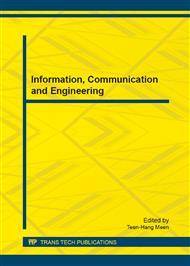p.185
p.191
p.196
p.202
p.211
p.217
p.222
p.226
p.232
Effects of Heat Transfer and Friction on the Performance of a Miller Cycle Diesel Engine with Considerations of Variable Specific Heats of the Working Fluid
Abstract:
The objective of this study is to analyze the effects of friction and heat transfer with considerations of variable specific heats of working fluid on the performance of a Miller cycle Diesel engine. The variations in power output and thermal efficiency with compression ratio, and the relations between the power output and the thermal efficiency of the Miller cycle Diesel engine are presented. The results show that the power output as well as the efficiency where maximum power output occurs will decrease with the increase of heat loss. The temperature-dependent specific heats of working fluid have a significant influence on the performance. The power output and the working range of the Miller cycle Diesel engine increase with the increase of specific heats of working fluid, while, the efficiency decreases with the increase of specific heats of working fluid. The influence of the parameter b related to the friction loss has a negative effect on the performance. Therefore, the power output and efficiency of the cycle decrease with increasing b. Note that the effects of heat transfer with considerations of variable specific heats of working fluid and friction loss on the performance are significant and should be considered in practice cycle analysis.
Info:
Periodical:
Pages:
211-216
DOI:
Citation:
Online since:
February 2013
Authors:
Keywords:
Price:
Сopyright:
© 2013 Trans Tech Publications Ltd. All Rights Reserved
Share:
Citation:


